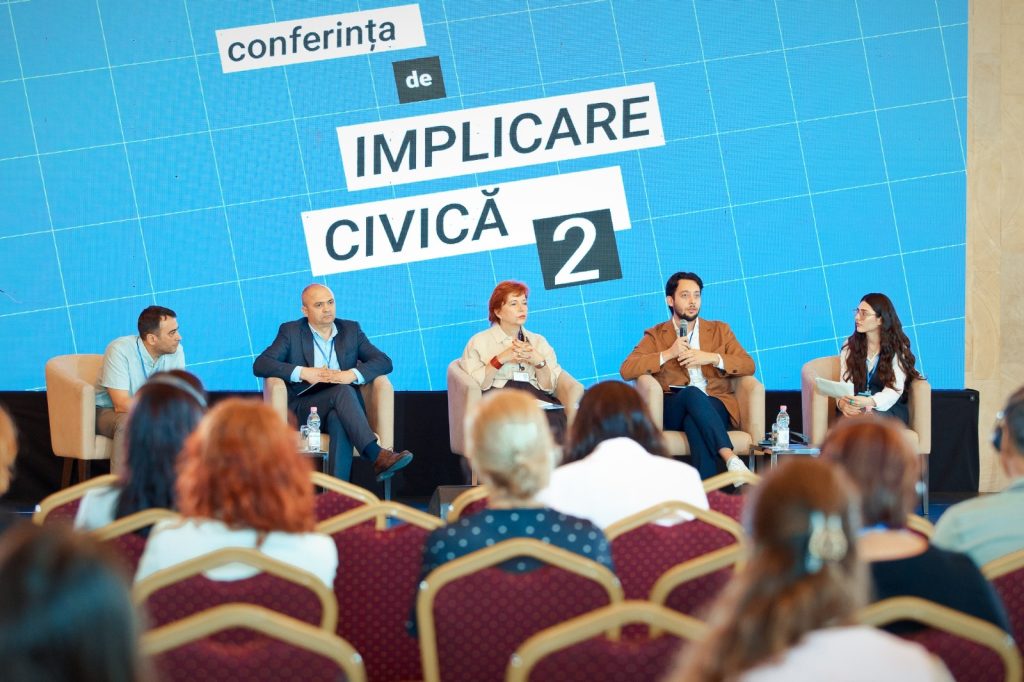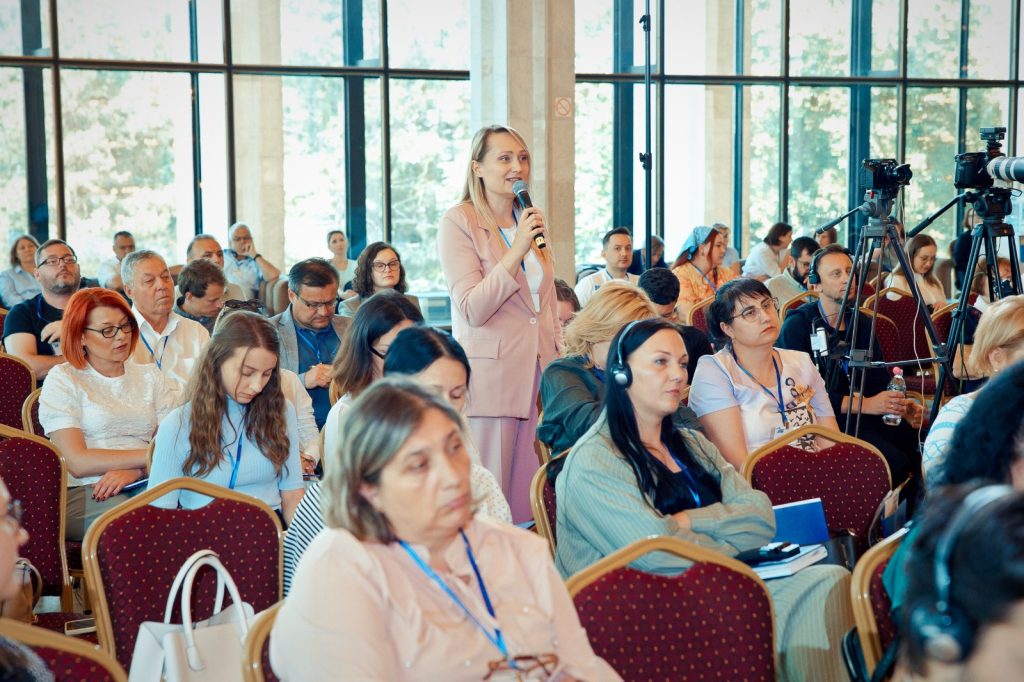We need a stronger democracy, and for that, we need a strong civil society and genuine citizen participation in public decision-making.
Over 160 participants – civic activists, representatives of central and local authorities, international and local experts, as well as leaders of non-governmental organizations – from Belgium, Poland, Romania, the Republic of Moldova, and other countries discussed this topic in Chisinau, at the second edition of the Civic Engagement Conference, organized by the Center for Policies and Reforms.
The event brought together 30 speakers in three discussion panels and eight thematic workshops on a wide range of topics – from deliberative and participatory democracy tools to digital technologies for civic engagement and strategies to defend civil society in an increasingly challenging and risk-exposed environment.


The conference opened with welcoming remarks from: Adrian Băluțel, Head of the Office of the President of the Republic of Moldova, Martina Spernbauer, Team Leader for Governance, Cooperation Section, Delegation of the European Union to the Republic of Moldova, Ceslav Panico, Ombudsperson of the Republic of Moldova, Rafał Chibowski, Country Director at People in Need Moldova, Antonella Valmorbida, Secretary General of ALDA.
Panel speakers included international and local experts from the European University Institute, ALDA – European Association for Local Democracy, Democracy Reporting International, European Partnership for Democracy, Declic.ro, Funky Citizens, Techsoup Romania, Eastern Europe Foundation, Promo-LEX, EcoContact, Open Government Partnership, UN Human Rights Office in Moldova, CONTACT Center and the Legal Resources Centre from Moldova.
The first panel of the Civic Engagement Conference focused on democratic innovations: tools that enable citizens to participate in decision-making beyond traditional mechanisms. One example discussed was the district participation councils, built with support from the Eastern Europe Foundation, already implemented in six districts of the country and involving over 100 local organizations.
These councils improve decision-making transparency and bring new topics to the public agenda, such as climate challenges. Importantly, they also contribute to the rise of a new generation of political leaders that are much more sensitive to community issues.
The second panel addressed practices to improve public participation. Many countries have legislated the state’s obligation to invite citizens into the decision-making process. For example, in Latvia, authorities are legally required to fund participatory budgeting, meaning decisions about public budget priorities are made together with citizens. Countries like Estonia and Finland have institutionalized national platforms for legislative consultation.
In the Republic of Moldova, legal norms exist, but they are not necessarily respected.
Consultation deadlines are often violated, and some documents are not consulted at all. Although formal sanctions exist for civil servants who violate these provisions, institutions themselves cannot be sanctioned. There is also no clear mechanism for challenging decisions that were not genuinely consulted with citizens.
Currently, authorities and civil society are working to replace the outdated public participation law. A first draft is already under consultation. The goal of the new law is to raise the level of consultation, clarify stages, extend deadlines, and require authorities to provide thorough justifications in responding to citizen recommendations.
Technological innovations will also be implemented: for example, each citizen will be able to subscribe to a field of interest or an authority to receive notifications about new consultation rounds.
Not only legislative initiatives deserve public consultation. Environmental permits, for example, are critically important because they impact entire generations.
The third panel addressed methods of defending civic space. Attacks against civil society have intensified worldwide. For instance, in some Balkan states, marketing companies are paid with public funds to discredit civil society. In Moldova, some politicians are calling for the replication of Russian-style legislation against “foreign agents.”
In fact, research shows that public trust in specific local NGOs is high. But general trust is affected by these defamation campaigns, which are part of hybrid warfare.
Legislative efforts are underway to introduce anti-SLAPP laws to protect journalists, activists, and other involved individuals from abusive lawsuits meant to silence them.
There is also an urgent need to finalize the new Public Participation Law, to guarantee government transparency and citizen consultation in public affairs.
Civic space exists in Moldova, but the experience of Georgia – once a frontrunner in democratic indicators among Eastern Partnership countries – shows that this space can rapidly deteriorate if preventive measures are not taken.
Thematic workshops provided participants with interactive learning and experience-sharing opportunities on topics such as: citizens’ assemblies as a public consultation mechanism; local participatory budgeting; election monitoring in the digital age; protecting human rights defenders; using technologies for civic engagement and NGO digitalization; collective petitions and campaigns; transparency and local-level participation by improving relationships between civil society organizations and public authorities; and strategies to defend civic space.
What still needs to be done to strengthen civic participation and protect civil society’s space for action in Moldova:
Public participation starts with access to information, and authorities must ensure that information reaches every citizen.
Authorities must provide participation infrastructures that include all voices in society, connect local opinions and experiences, and bring them to the national, regional, or even global level.
Authorities must ensure that electronic participation platforms are not just symbolic, that citizens have enough time to express themselves, and that their views are taken into account.
Civil society can amplify people’s voices, raise everyone’s level of participation in public life, and must therefore be more proactive in communicating with the public.
Citizens need tools that allow them to make a difference not just during elections, but every day.
The Conference was organised as part of the INSPIRED Moldova project, funded by the European Union and implemented by the European Partnership for Democracy (EPD), the European Association for Local Democracy (ALDA), the National Assistance and Information Centre for NGOs in Moldova CONTACT, the Centre for Policies and Reforms (CPR Moldova), Democracy Reporting International (DRI), and People in Need (PIN). The views expressed during the event do not necessarily reflect the official position of the European Union.
CPR Moldova receives institutional support from Sweden.